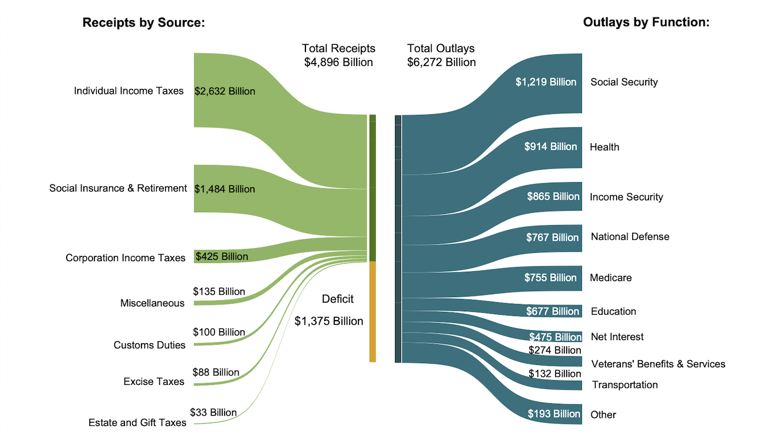Counterpoint
Hal Andrews | December 22, 2022The Four Horsemen of the Healthcare Apocalypse
|
In a $4T+ health economy whose growth rate has exceeded inflation for 37 of the last 42 years1,2, it is not surprising that its financiers (i.e., Federal and state officials, employers, and individuals) are increasingly vocal in demanding change. One thing that “everyone knows” about the U.S. healthcare system is that it is unsustainable, which this visual3 helps to explain:
Stein’s Law states that “if something cannot go on forever, it will stop.”4 The key questions are this: What market actors will impose the fundamental economic principles of demand, supply, and yield on the U.S. health economy, and when will it happen? I believe that the “four horsemen of the healthcare apocalypse” are Amazon, Walmart, United Health Group, and the status quo. Implicit in the phrase is the notion that one or more of these “horsemen” will create massive and systemic change that is apocalyptic to the finances of traditional health economy stakeholders. Which will it be?
At our inaugural THE Summit in October, I asked one group of panelists to name the “horsemen” that was most frightening to them. Each panelist’s answer was influenced by their experience and expertise, as would be the answer of each person reading this post. The computer scientist named Amazon, the managed care expert named United, and the health system executive named…the status quo.
However, there is not a correct answer to which “horseman” is most frightening; the real question is whether any “horseman” is frightening enough to motivate your organization to change. Change is difficult and uncomfortable, which in turn explains the power of the status quo. Amazon, Walmart, and United are quite skilled at change: changing products, markets, business models, and even entire business lines. As General Eric Shinseki, the United States Secretary of Veteran Affairs from 2009-2014, said, “If you dislike change, you’re going to dislike irrelevance even more.” Can your organization make necessary change to the status quo fast enough to compete with Amazon, Walmart, and United? |
- Opinion






















.png)

















.png?width=171&height=239&name=2025%20Trends%20Report%20Nav%20(1).png)


.png?width=672&height=475&name=Consumer%20Loyalty%20(2).png) Based on my four decades in the industry, I think that the health system executive’s answer was correct:
Based on my four decades in the industry, I think that the health system executive’s answer was correct: